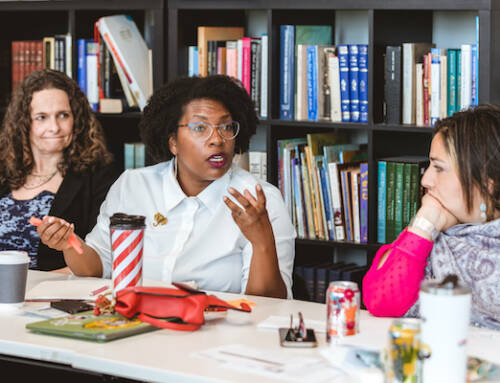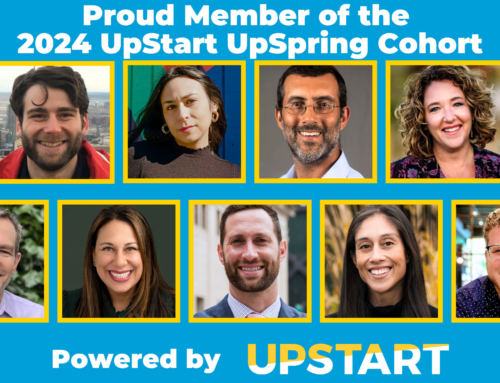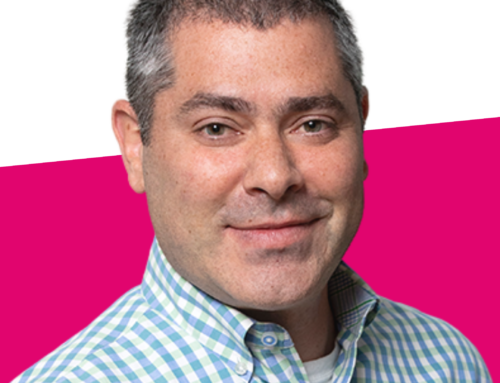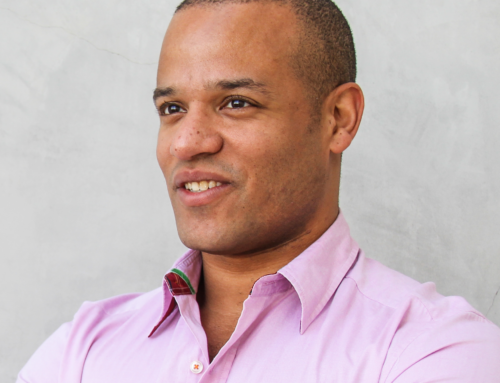I recently took a walk in the woods with two women, one twenty years older than I am, the other forty years older, to discuss the challenges of aging. We paused when we saw white-tailed deer hop-freeze beside us in the thicket. We shared stories about women in our lives, and how they navigated the aging process. We talked about our own changing bodies, changing minds, changing children, changing communities. We turned our faces towards the sunshine and stopped in our tracks when someone shared a particularly resonant insight, as we let it wash over us.
The context was The Conversation, which brings together Jewish professionals from diverse geographical and experiential backgrounds, to talk about the future of American Jewish life. The format was Open Space, which allows the participants to drive the direction and nature of the conversations, rendering the work of the organizers swan-like; they appear to be gliding seemingly seamlessly upon the water, as their feet paddle incessantly beneath the surface as they strive to create a container for growth. My small group of three took advantage of the flexible rules (you need only two people to have a conversation) and took literally the idea of open space, bringing our feet and the wide sky into our discussion about Jewish wisdom and spiritual guidance around aging.
Perhaps my older counterparts were slightly surprised to see me join this discussion, and I was initially hesitant to join as well. But aging and growing and adapting to an inevitably changing environment, whether it be ones own body, or the world at large, and facing the inevitability of death, of ceasing to exist in the way that we know, is perhaps the most relevant conversation I feel we need to have as a Jewish community today. And it is a conversation we need to have across the gaping divides of decades and states, degrees and denominations. Where better to begin than on the wet earth, in the week before Rosh Hashanah, with our own selves.
It is no news that we are living in a rapidly changing world. Nor is it new; it has always been so. We are, though, living in a particularly acute moment of change, in which we are awake to the nature of those changes, and to what is at stake. The demographic reality of rapidly declining Jewish numbers, the immediate future of the state of Israel, and the Google + nature of the global world in which Judaism is one circle amongst many, are changes so pressing and so big that we dont yet have the mental, structural, or, in fact, spiritual, tools to navigate them. We are currently struggling as we attempt to figure out what is most valuable to us as a community, and how to maintain its vibrancy and vigor, as it grows older, and as the world seems to grow younger around it.
The Internet age has radically changed the nature of knowledge sharing. Knowledge is no longer rare and valuable. It has been democratized and flattened, and this has created a crisis in education what should we be teaching our children, and how? A recent article in The New York Times Magazines Education Issue suggests that character education, the development of traits like curiosity, optimism, self-control, and gratitude, is perhaps as, if not more, important than teaching letters and numbers and methods and facts. The Jewish people are not alone; we, as a society, have become unsure what it is we want to convey to our children to prepare them for the future, and our own structures of making those decisions are failing us. Which is why taking a walk in the woods with women from different backgrounds and generations seems like as good a plan as any to help us figure out the next steps.
And perhaps it is even more than that. Perhaps this convening and empowering of a diverse swath of people is symbolic of a new method of functioning in a changing environment. Knowledge has been devalued as a commodity, and this has shifted the nature and power structure of decision-making. Perspective and experience, combined with wisdom are emerging as critical values, and groups, rather than individuals, are the best vehicles to navigate todays terrain. These groups become more vibrant and robust the more perspectives they include. Perhaps our next step as a community facing the aging process is to diversify our structural portfolios, to bring in the voices from all walks of experience to help us better understand the woods in which we are walking, and where to head next. As David Bryfman wrote recently in Innovation: More than Babble The Power of Diverse Multiple Voices in the Innovation Process, we need each other now more than ever: not only is it more productive to innovate with others who are not exactly like you [but] the Jewish peoples very survival may depend upon using a diverse multiplicity of voices in every endeavor moving forward.
For innovation, for all of the hype that surrounds it, is not so radical. It is simply another word for aging with grace and wisdom, for renewal, for teshuva. We renew ourselves each year as Jewish individuals, yet even the most intimate moments of repentance are done in a communal setting. We must bring this spirit of connectedness into our communal work as we strive to preserve our traditions and values. None of us should be left to age alone. The creation of diverse and pliable new structures which incorporate multiple perspectives is necessary for the learning and growth that will encourage and sustain renewals in the Jewish world, and make meaningful our collective teshuva, our attempt to grow and thrive, to walk strong and shining from the woods into this New Year, and into others to come.
Maya Bernstein is an associate at Upstart, was a participant last month in The Conversation, sponsored by The Jewish Week. This piece first appeared in The Jewish Week and eJewish Philanthropy.
Our purpose is to enable entrepreneurs to bring bold Jewish ideas to light. We help them reach Up to people in new ways that are meaningful, more inclusive, and create a brighter future for our Jewish community and the world we share.





